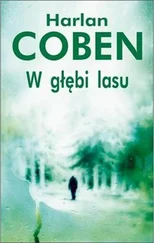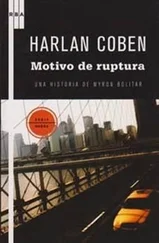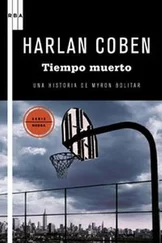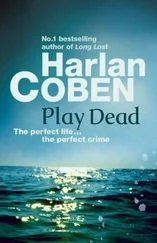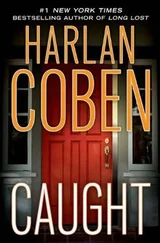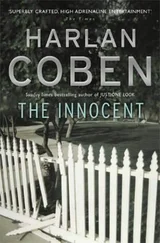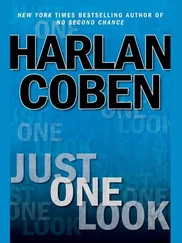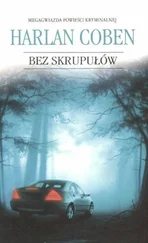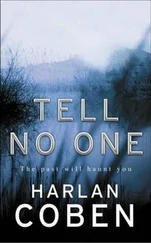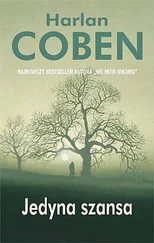Harlan Coben - Six Years
Здесь есть возможность читать онлайн «Harlan Coben - Six Years» весь текст электронной книги совершенно бесплатно (целиком полную версию без сокращений). В некоторых случаях можно слушать аудио, скачать через торрент в формате fb2 и присутствует краткое содержание. Год выпуска: 2013, ISBN: 2013, Издательство: Orion, Жанр: Старинная литература, на английском языке. Описание произведения, (предисловие) а так же отзывы посетителей доступны на портале библиотеки ЛибКат.
- Название:Six Years
- Автор:
- Издательство:Orion
- Жанр:
- Год:2013
- ISBN:9781409144571
- Рейтинг книги:5 / 5. Голосов: 1
-
Избранное:Добавить в избранное
- Отзывы:
-
Ваша оценка:
- 100
- 1
- 2
- 3
- 4
- 5
Six Years: краткое содержание, описание и аннотация
Предлагаем к чтению аннотацию, описание, краткое содержание или предисловие (зависит от того, что написал сам автор книги «Six Years»). Если вы не нашли необходимую информацию о книге — напишите в комментариях, мы постараемся отыскать её.
Six Years — читать онлайн бесплатно полную книгу (весь текст) целиком
Ниже представлен текст книги, разбитый по страницам. Система сохранения места последней прочитанной страницы, позволяет с удобством читать онлайн бесплатно книгу «Six Years», без необходимости каждый раз заново искать на чём Вы остановились. Поставьте закладку, и сможете в любой момент перейти на страницу, на которой закончили чтение.
Интервал:
Закладка:
I peeked in through the window. Shanta Newlin caught my eye and held up a finger signaling one minute. I nodded and waited. Five minutes later the door opened and the students streamed out. Shanta stood in the doorway. When the students were gone, she said, “Walk with me. I have to be somewhere.”
I did. Shanta Newlin had one of the most impressive résumés I’d ever seen. She graduated Stanford as a Rhodes Scholar and attended Columbia Law School. She then worked for both the CIA and FBI before serving in the last administration as an undersecretary of state.
“So what’s up?”
Her manner was, as always, brusque. When she first came to campus we had dinner. It wasn’t a date. It was a “let’s see if we want to” date. There is a subtle difference. After that date, she chose not to pursue it, and I was okay with that.
“I need a favor,” I said.
Shanta nodded, inviting me to make my request.
“I’m looking for someone. An old friend. I’ve tried all the usual methods—Google, calling the family, whatever. I can’t get an address.”
“And you figured that with my old contacts, I’d be able to help.”
“Something like that,” I said. “Well, yes, exactly like that.”
“Her name?”
“I didn’t say it was a she.”
Shanta frowned. “Name?”
“Natalie Avery.”
“When was the last time you saw her or had an address?”
“Six years ago.”
Shanta kept walking, military style, ramrod back, very fast. “Was she the one, Jake?”
“Pardon?”
A small smile came to her lips. “Do you know why I never followed up on our first date?”
“It wasn’t really a date,” I said. “It was more a ‘let’s see if we want to’ date.”
“What?”
“Never mind. I figured that you didn’t follow up because you had no interest.”
“Uh, that would be a no. Here is what I saw that night: You’re a great guy, you’re funny, you’re smart, you have a full-time job, and you have blue eyes to die for. Do you know how many single straight guys I’d met with that criteria?”
I wasn’t sure what to say, so I stayed quiet.
“But I could sense it. That’s part of being a trained detective, maybe. I study body language. I look for the little things.”
“Sense what?”
“You’re damaged goods.”
“Gee, thanks.”
She shrugged. “Some men carry torches for old loves, and then some guys—not many, but some—get completely consumed by the torch’s flames. It makes them nothing but long-term trouble for the follow-ups.”
I said nothing.
“So this Natalie Avery that you’re suddenly desperate to find,” Shanta said. “Is she that flame?”
What would be the point in lying? “Yes.”
She stopped and looked way up at me. “And it hurt bad?”
“You have no idea.”
Shanta Newlin nodded and started walking away, leaving me behind. “I’ll have her address for you by the end of the day.”
Chapter 7
On television, the detective always goes back to the scene of the crime. Or, come to think of it, maybe it’s the criminal who does that. Whatever. I was at a dead end, so I figured that I’d go back to where it all happened.
The retreats in Vermont.
Lanford was only about forty-five minutes from the Vermont border, but then you had another two hours plus to get up to where Natalie and I first met. Northern Vermont is rural. I grew up in Philadelphia and Natalie was from northern New Jersey. We didn’t know rural like this. Yes, an objective observer might again point out that in such a secluded venue, love would flourish in an unrealistic way. I might agree or I might point out that in the absence of other distractions—like, say, anything—love might suffocate under the weight of too much togetherness, thus making this proof of something far deeper than a summer fling.
The sun was starting to weaken by the time I passed my old retreat on Route 14. The six-acre “subsistence farm” was run by writer-in-residence Darly Wanatick, who offered critiques of the retreatees’ work. For those who don’t know, subsistence farming is farming that provides the basic needs for the farmer and his family without surpluses for marketing. In short, you grow it, you eat it, you don’t sell it. For those who don’t know what a writer in residence is or what qualifies him or her to critique your writing, it meant that Darly owned the property and wrote a weekly shopping column in the free local paper, the Kraftboro Grocer . The retreat housed six writers at a time. Each writer had a bedroom in the main house and a shack or “work cottage” in which to write. We all met up for dinner at night. That was it. There was no Internet, no TV, no phones, yes lights, but no motorcar, not a single luxury. Cows, sheep, and chickens meandered around the property. It started out soothing and relaxing and I enjoyed that unplugged, unconnected solitude for about, oh, three days and then my brain cells began to rust and corrode. The theory seemed to be if you make an author feel this numbingly bored, he or she will flock to the salvation of his legal pad or laptop and produce pages. It worked for a while and then it felt as though I’d been placed in solitary confinement. I spent one entire afternoon watching a colony of ants carry a bread crumb across the “writer cottage” floor. So enamored was I with this bit of entertainment I strategically placed more bread crumbs in various corners in order to create insect relay races.
Dinner with my fellow retreat scribes was not much of a reprieve. They were all precious pseudo-intellectuals writing the next great American novel, and when the subject of my nonfiction dissertation was tossed up, it landed upon the old kitchen table with the thud of a heaping pile of donkey dung. Sometimes these great American novelists did dramatic readings of their own work. The works were pretentious, tedious, self-involved crap written in a prose style one might best describe as “Look at me! Please look at me!” I never said any of this out loud, of course. When they read, I sat with my most studiously enraptured expression frozen to my face, nodding at regular intervals to appear wise and engaged and also to prevent myself from actually nodding off. One guy named Lars was writing a six-hundred-page poem on Hitler’s last days in the bunker, written from the viewpoint of Eva Braun’s dog. His first reading consisted of ten minutes of barking.
“It sets the mood,” he explained, and he was correct if that mood was to punch him hard in the face.
Natalie’s artist retreat was different. It was called the Creative Recharge Colony and had a decidedly more crunchy-granola, hemp, hippie-esque, “Kumbaya” commune feel to it. They took breaks by working in a garden that grew organic (and I am not just talking about food here). They gathered around a fire at night and sang songs of peace and harmony that would make Joan Baez gag. They were, interestingly enough, wary of strangers (perhaps because of what they “grew organic”) and there was a guarded, cultish edge to some of the staff. The property was more than a hundred acres with a main house, true cottages with fireplaces and private decks, a swimming pool designed to look like a pond, a cafeteria with fantastic coffee and a wide variety of sandwiches that all tasted like sprouts covered in wood shavings—and on the border with the actual town of Kraftboro, a white chapel where one could, if they so desired, get married.
The first thing I noticed was that the entrance was now unmarked. Gone was the brightly painted CREATIVE RECHARGE sign, like something you’d see advertising a kids’ summer camp. A thick chain blocked my car from heading up the drive. I pulled over, turned off the ignition, and got out of the car. There were several NO TRESPASSING signs, but those had always been there. With the new chain and without the Creative Recharge welcome, the no trespassing signs took on a more ominous tone.
Читать дальшеИнтервал:
Закладка:
Похожие книги на «Six Years»
Представляем Вашему вниманию похожие книги на «Six Years» списком для выбора. Мы отобрали схожую по названию и смыслу литературу в надежде предоставить читателям больше вариантов отыскать новые, интересные, ещё непрочитанные произведения.
Обсуждение, отзывы о книге «Six Years» и просто собственные мнения читателей. Оставьте ваши комментарии, напишите, что Вы думаете о произведении, его смысле или главных героях. Укажите что конкретно понравилось, а что нет, и почему Вы так считаете.


